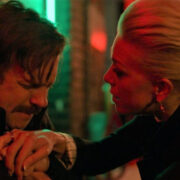Fighting For Equality Behind The Scenes: An Interview With Amy Adrion, Director of HALF THE PICTURE
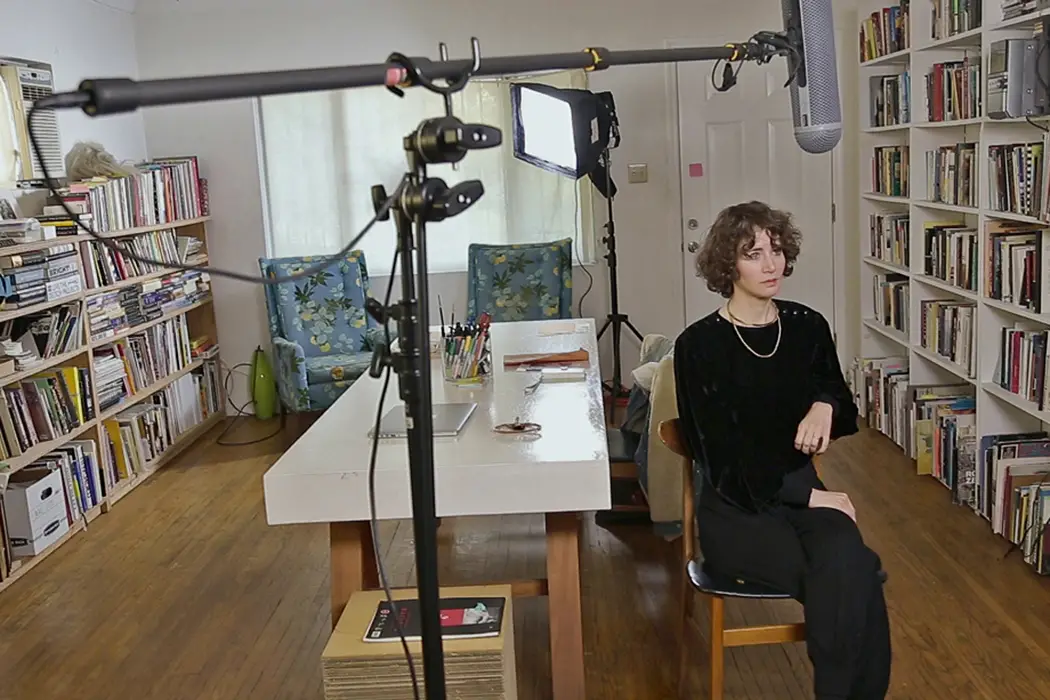
Sophia Cowley is a young writer, yogi, feminist and film…
Last week, I reached out to director Amy Adrion to speak to me about her first feature-length film, Half The Picture. Graciously, she shared her insights on gender inequality in the film industry and how we can create change for women in Hollywood.
Adrion’s upcoming documentary will feature about 50 interviews with female filmmakers who help to shape the images we see on screens today. (Spoiler alert: Miranda July is one of them!)
When Feminism & Film Converge
Consider the following facts: In the U.S., about 50% of film school graduates are women, and women account for about half the audience in cinemas. Yet in 2015, women directed only 9% of top feature films and 16% of all TV shows. And only 6% of all cinematographers working on the top 250 films were female. These facts and figures are important in realizing who dictates the content we consume on a daily basis, and how the faces we see (or don’t see) impact our perception of everyday life.
The truth is that female filmmakers, along with any person of color or anyone in the LGBTQ community, face a rather dismal reality when it comes to accessing funding or support from within the industry. I could write on end about the “boys club” atmosphere of old Hollywood, or about how there have been reports of serious discrimination in recent years. But things are slowly changing.
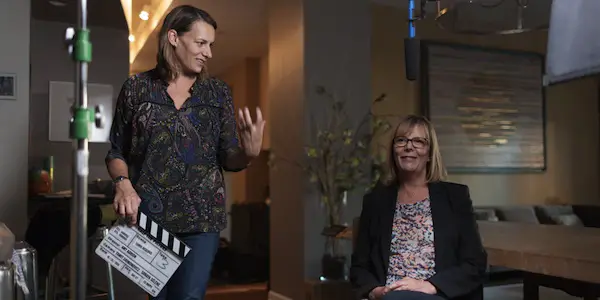
Last May, the US Equal Employment Opportunity Commission (EEOC) began an investigation into the discriminatory hiring practices in Hollywood, an act that brought these issues into more of a mainstream consciousness. And, the investigation acted as a catalyst for the production of Amy Adrion’s Half The Picture. Below is my conversation with Ms. Adrion via email.
Sophia Cowley for Film Inquiry: What was the spark that set this project into motion? Can you talk a bit about the EEOC investigation?
Amy Adrion: Like many of us, I felt bombarded by the constant stream of depressing numbers regarding women’s participation as directors in Hollywood.
Low numbers of feature directors, low numbers of TV directors, low numbers of screen commitments and print and advertising, low numbers of award recognition, etc. etc. etc. – it was maddening. The media coverage was there, the problem was apparent but nothing was happening to address the issue.
Then in May 2015 the ACLU published their letter in The New York Times encouraging the EEOC and other State agencies to look into what they described as systemic gender discrimination in the hiring of directors in Film and TV, based on their own year-long investigation.
Then the EEOC started interviewing women directors last October and I thought – this is incredible, we have to document what’s going on here. This is a civil rights issue, an employment discrimination issue, and it affects the very creation of our culture – we have to dig deeper and follow what happens.
Who do you hope to reach with this film?
Everyone whose worldview is affected by the images they see in Film and TV, people who enjoy a good Hollywood story, who like saucy, funny, smart women, people who enjoy watching dreamers being dogged about following their dreams. People who think we’re on the verge of toppling the patriarchy. And especially those who don’t.
Half The Picture is about the importance of representation in media, both in front of and behind the camera. How were you able to interview such a wide variety of names and faces in the industry today?
Our focus with Half The Picture is on women directors – we don’t get into the sexism actresses face, or challenges encountered by female producers, writers or executives. This is about the women behind the camera, the directors telling the story. And study after study has shown that when women direct, that has a significant impact on how the characters onscreen are portrayed and how many women work in key below-the-line jobs such as Composer, Editor, Cinematographer.
Basically, the director is a gateway job and if you can change the numbers there, there will be ripple effects throughout the industry.
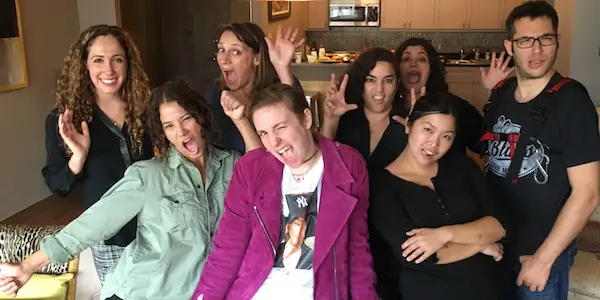
I started out contacting women directors I had worked with or knew. I got my MFA in directing at UCLA and while there worked as the Assistant Director on a theatrical performance Miranda July created, so I contacted her for an interview.
My thesis advisor, Nancy Richardson, is a fantastic Editor who edited Catherine Hardwicke’s Twilight and Thirteen, so I asked her for an introduction to Catherine, who bless her heart said YES immediately, because she is so committed to promoting these issues about women directors.
I had lots of coffee meet-ups and wrote tons of emails – then Miranda July introduced me to Lena Dunham, Nisha Ganatra introduced me to Jamie Babbit, Gina Prince-Bythewood introduced me to Kasi Lemmons and the circle widened. At this point, we’ve completed 40 interviews and we have about 10 left to go.
Half The Picture seems to focus largely on Hollywood filmmaking, but will you also discuss independent filmmaking from a female perspective?
Sure – I grew up on independent films. I lived in NY and worked for years at a small film distribution company called First Run Features that released American independent, foreign, gay and lesbian and niche films. I would go to the Sundance Film Festival looking for films to acquire – that’s my background and my passion. Many of the first directors I approached are women whose films made a huge impact on me at that time – Kimberly Peirce with Boys Don’t Cry, Mary Harron with American Psycho, Gina Prince-Bythewood with Love & Basketball, Lynn Shelton with Humpday, Miranda with Me And You And Everyone We Know, Catherine with Thirteen.
Independent filmmaking is where women have had more of a chance to get their stories told, so that’s certainly a big part of our story.
Who are some of your personal idols in the industry?
There are so many, but a few to highlight include…
Ava DuVernay – a lady who didn’t find space in the industry for the stories she wanted to tell so she started her own damn company, AFFRM, which has now evolved into ARRAY, which champions movies by women and filmmakers of color. She’s a creator, a businesswoman and a force to be reckoned with – she talks the talk and walks the walk, as she proved when she hired an all female directing team for the first season of her incredibly successful TV show Queen Sugar.
She basically was the change she wanted to see in the industry, and with so many panels, conferences and initiatives sprouting up, it was refreshing to see someone say, “Hey – here’s how you change the numbers – at least for one TV show. Done.” I just love her.
Jill Soloway – she is not only an incredible writer and director and a true creative genius – I am currently obsessed with Transparent – but she’s also someone who has changed so much of the conversation about whose stories deserve to be told, what kind of messy life-stuff gets explored in entertainment, and how to talk about any of this stuff.
Be the subject, not the object, [Soloway] often exhorts. YES.
Also, Donna Langley at Universal, Keri Putnam and Caroline Libresco at Sundance Institute, the director Lexi Alexander who has been so hilariously and bravely outspoken about these issues on her blog and in social media, Maria Giese, the director and rabble-rouser who basically took these issues of gender discrimination to the ACLU and EEOC and wouldn’t give up until they did something about it, despite the damage her outspokenness has caused to her career.
And of course, Brenda Chapman, Karyn Kusama, Lena Dunham, Catherine Hardwicke, Kimberly Pierce, Chris Hegedus, Kirsten Schaffer, Penelope Spheeris, Rosanna Arquette, Daisy von Scherler Mayer, Miranda July, Destri Martino, Sam Taylor-Johnson, Dolores Leal, Emily Best, Kasi Lemmons, Mary Harron, Gina Prince-Bythewood, Ivana Massetti, Nell Scovell, Jamie Babbit, Tina Mabry, Nisha Ganatra, Jen McGowan, Patricia Cardoso, Jennifer Dean, Rachel Feldman, Jennifer Phang, Lucy Walker, Jennifer Warren, Leah Meyerhoff, Lynn Shelton, Maggie Greenwald, Maria Burton, Dr. Martha Lauzen, the ACLU’s Melissa Goodman, Women And Hollywood’s Melissa Silverstein, and The Los Angeles Times’ Rebecca Keegan-
all of whom are either directors fighting to realize their creative visions despite the shitty odds and institutional challenges, or are women actively advocating for more opportunities for female directors, or are women covering these issues and making them known to the greater public so they cannot any longer go ignored. They are all my heroes – every last one of them – and I will be forever grateful that they took the time to talk to us at Half The Picture.
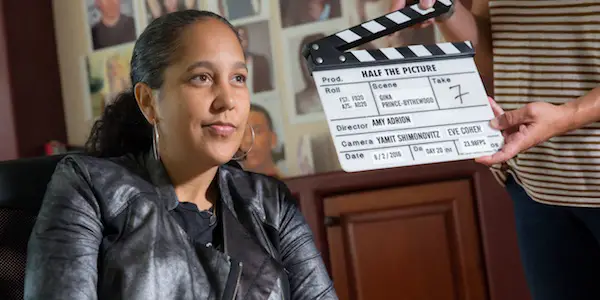
How You Can Help
Half The Picture is currently in its production stage. Amy Adrion and her crew of hard-working, talented individuals have been shooting for nine months with the intention of bringing justice to women creators everywhere. Historically speaking, documentaries have served as a gateway genre for many women filmmakers, so I can only imagine where Adrion will go from here!
With our help, more women can tell their stories without the burden of jumping through hoops and fighting discrimination. If you believe in artistic equality for all, consider donating to the film’s Seed & Spark page here. There is less than one week left to donate!
Does content like this matter to you?
Become a Member and support film journalism. Unlock access to all of Film Inquiry`s great articles. Join a community of like-minded readers who are passionate about cinema - get access to our private members Network, give back to independent filmmakers, and more.
Sophia Cowley is a young writer, yogi, feminist and film enthusiast from NY. Her idols include Miranda July, David Lynch and Abraham Lincoln. She runs the blog www. isthisthereellife.wordpress.com.






